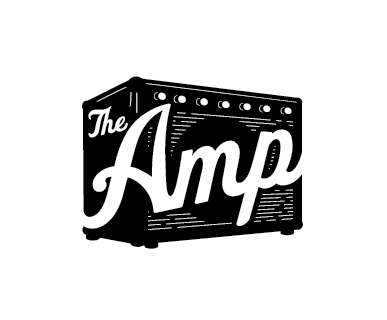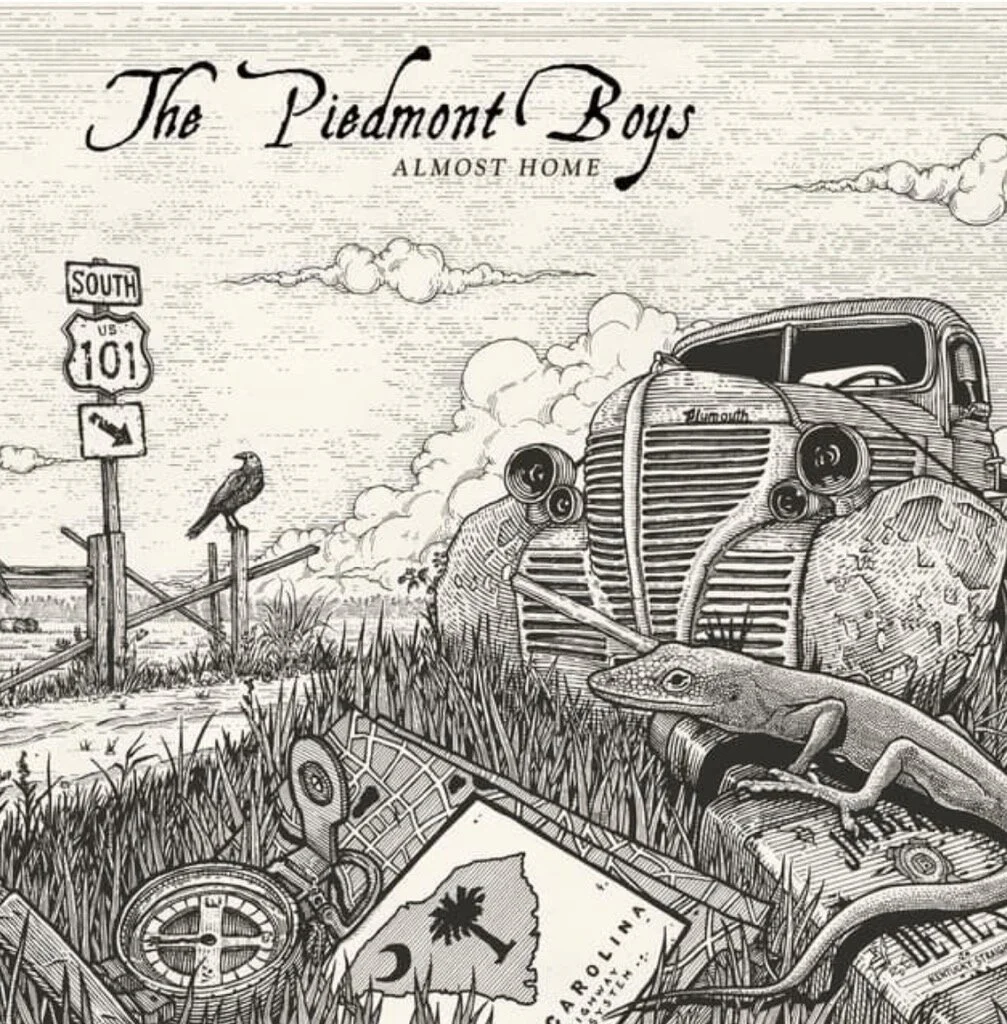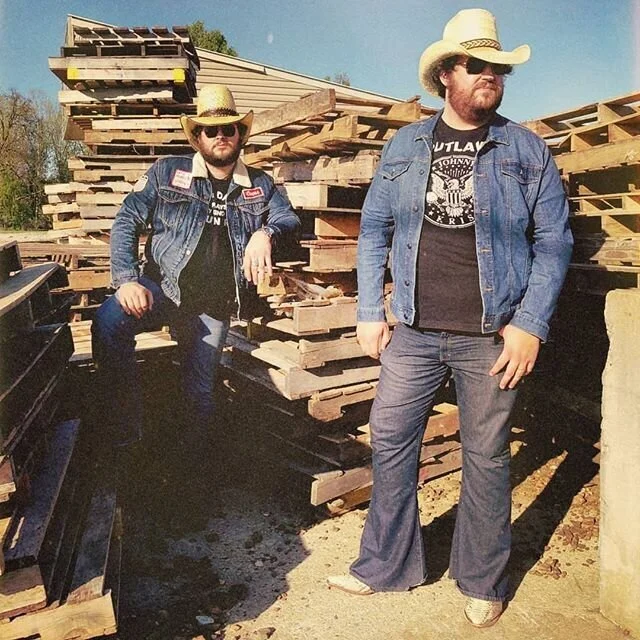Cold German Mornings: An Interview with James Steinle and Scott Davis
The Amp recently had the opportunity to interview artist James Steinle and his producer, Scott Davis, on his upcoming album, Cold German Mornings, out on December 11th. His thrid release of 2020, Cold German Mornings is an album that you can’t just listen to once and walk away knowing the intent behind each song. It’s deep, it’s involved and it’s a record that should be listened to as a whole, the way Steinle intended it. Steinle is one of those artists that has the feel of an old soul, wise beyond his years and wholly underappreciated for the quality of work he’s putting out.
1. Let’s talk about your newest album, Cold German Mornings. You say it’s an album that you’ve been writing in your head since you could walk, but what was it about this year that made you finally sit down and actually write it all out? Was there something significant that took place? Or was it the fact that this year has left everyone with a bit more time on their hands to pursue projects that they might not otherwise have completed?
James:
Well, like you said, I’ve been writing this record for a long time. Writing to me isn’t always the act of thumbing some shit into the iPhone notes or physically writing it down. It’s the act of observation and being aware: processing and unpacking difficult things. The act of writing itself, to me, is more of an exercise - getting in shape so when I’ve finally processed all these thoughts and understand the route I want to take in terms of articulating them, I’m prepared. So I don’t think the pandemic time surplus was the reason. I think it was more of finding a little mental pasture of clarity and motivation to really sit down and hammer this record out.
2. It seems like you really enjoy a good concept album. Do you feel like that’s true? Do you plan on subsequent albums also being concept albums? Or is this something you had to get out of your system?
James:
I definitely do. There will definitely be more concept albums, but I’m not strictly bound to the idea. To me, I feel having the framework of a concept album makes for more interesting, cohesive pieces of art. I’ve been hearing for as long as I’ve been doing this that “people don’t listen to records anymore” or “records are a waste of time.” I’ve slowly realized what that actually means is “most people don’t know how to write records anymore.” And what I mean by that is, that it seems to me like lots of folks (especially in the Americana sphere) are just writing whatever comes to mind or whatever they’ve mined - combing through and picking out what they feel doesn’t suck and then slapping those tracks together and calling it a “record.”
And once I realized that, I realized I was guilty of that a lot of the time. I’d been writing whatever was on my mind in a very unaware, unfocused fashion then relying on production or lucky lyrical coincidences to give it some form of cohesion. Once I dove deeper into folks like Tom Waits and Terry Allen, I understood there was a whole other dimension of record creation that could elevate art to another realm. The arrangement, dynamics, editing, instrumentation choices - all these things that gave a record what I’d call a cinematic quality. Then I realized how hard that shit is. Haha.
But at some point in the past year, I felt like I was like a college student turning in exercises for homework and I needed to drop out or graduate and start actually putting all these things I’d learned into action. And that’s what this record felt like. My first complete artistic expression in the “real world.”
3. Is this album your favorite that you’ve made? If so, why?
James:
Definitely. I think it was kind of a perfect storm - like the universe lined up and everything happened just right. Nothing was forced, there was no micromanaging; everyone just put in their work from wherever they were and we all worked with what we had within the framework.
I’ve worked with Scott as a musician on all my studio records and we’d been talking for a while about teaming up to knock out one of my more ambitious projects. And when I say ambitious projects I mean more uncensored and true to who I am (Scott is also a weirdo like me). We were going to do it on “Man from the Mountain.” But because lockdown was so strict at that point, I just decided to figure it out myself. But when I sat down one morning a few months ago and had this moment of clarity and completed the record, I literally texted him that day and knew this was the project.
I think all of the anxiety in the world right now, all that pent up emotion, coupled with Scott having a pretty deep understanding of who I am and where I’m trying to get artistically came together to create a really singular thing. It felt like I was able to lyrically lend commentary on contemporary and old times simultaneously without sounding condescending or preachy. And Scott and I were vibrating in separate places but on the same wavelength. It was just a real spiritual experience for me.
4. Describe yourself as an artist in three words.
James:
Cares a lot.
5. If you weren’t a musician, what would you be doing?
James:
Ranching. Or distilling whiskey. Or welding. Maybe run a cool little dive bar one day.
6. Do you ever feel like an old soul? Or perhaps that you are the equivalent of a young Hemingway? Your writing and songs seem so deep and so advanced that I feel like you’re on another level.
James:
I’m definitely no young Ernest, but I’m trying my best to make really good art. I’m not where I want to be yet. But it feels necessary to try. I want to be one of the ones raising the bar; not lowering it. And I think in order to do that, it requires looking to the masters of the trade while simultaneously looking at yourself and what you create in the mirror. When you do that, your soul does age more rapidly as you’re surrounded by folks significantly your senior. But because the words they sing or speak have a timeless quality to them, age is irrelevant. I’ve always gotten along better with older songwriters.
7. What do you hope listeners take away from this album?
James:
I hope folks will just let their guard down and enjoy something outside their comfort zone. I hope folks will just understand this is what goes on in my brain and is a closer representation of who I am and how I think than anything I’ve done previously. I hope they don’t get caught up comparing it to my previous work or my future work. I hope they understand that everything up until this record, while I still put my stamp of approval on those works, was me still figuring out how to do this. But mostly, I hope it will help folks let go of things that may be eating at them and hit the restart button. That’s what it was for me.
8. What’s your favorite song on Cold German Mornings?
James:
“Bronze & Silver” - hands down. That was the song that started the final writing spree and it just feels right. It has brought me a lot of peace in these times. And Scott’s string arrangements and Richie (Millsap)’s percussion really give it this triumphant, emotional feel that just…well, it just makes me really happy.
9. What are you most proud of when you think about making Cold German Mornings?
James:
As a whole: the sonic landscape Scott and the other players were able to create with a limited budget while in confined spaces. On my end of things: my editing, the track sequence, and melodic versatility. There are still a couple tracks that borrow a little more than I’d like: the melody of “The Lusitania” being akin to Guy’s “Cold Dog Soup” and the lyrics of “Three Dark King’s” being an adaptation of an old public domain German poem, “Die drei dunkeln Koenige” by Wolfgang Borchert.
But on the flipside of that, Borchert’s poem is his poetic adaptation of the “Three Kings of Orient Are” and the melody Guy uses in that song has been tweaked and recycled throughout the history of folk music. I understand this line of work is all about inspiration and borrowing and that one can’t beat themselves up too much, but I’m super self-critical and fear people thinking these things were used in bad faith. But that’s part of the growing process as a songwriter, for me. That being said, these influences are what inspire me and were crucial cogs in the conceptual arc of the record.
10. What are you listening to these days? What are you reading?
James:
I’m not a huge reader. I’ve been reading Cormac McCarthy’s ‘Blood Meridian’ slowly but surely because some folks likened my “Man from the Mountain” record to his writing style, so I figured I’d check that out. I’m just super ADD most of the time. Writing has always been more appealing to me. Listening-wise - lots of Gabe Wootton, Kate Wolf, Dan Reeder, and Brennen Leigh.
11. Is there new music coming out (besides your own) that you’re excited about?
James:
My man Chris King has a new record coming out on the same day as mine that he did at the Band of Heathens recording studio, “Finishing School,” in Austin. I’ve heard bits and pieces and it really rips. Also, whenever Noel McKay’s new record comes out - that will be a great day.
12. What do you hope that 2021 looks like for you, both personally and professionally?
James:
Personally: find some stability and put some roots down somewhere. Professionally: just keep moving forward and finding more folks that need the words and melodies.
Questions answered by the producer of Cold German Mornings, Scott Davis.
1. What were your first thoughts when James came to you with this album? Did you know exactly how you wanted to make it? Or did it take some time for you to figure out how this record was going to be made?
Scott:
James had been hinting for a little while about wanting to do a more sonically adventurous and ambitious project, but I had assumed it would happen post-pandemic for the sake of cramming a lot of musicians in a room together. So, I was a little surprised by the timing. But looking at it now, it was perfect because the limitations of the COVID world helped make clear for me exactly how the record should be made. A year ago, I would’ve been wondering how to stretch the budget to hire all the right players and find the right room, but in this case, we knew immediately we would be recording isolated from each other and relying a lot on modern technology to get this done. We would need to be completely trusting of the individual musicians and engineers in order to avoid a lot of time consuming back and forth. So, in a lot of ways, the circumstances dictated the process.
2. What were your goals when producing this album?
Scott:
I don’t get very many projects as well thought out as this record was on the front end. James is kind of unique that way. So, the main goal was to try to understand what he was hearing in his head and make that come out of the speakers. He even had the song order sequenced before we had ever recorded a note, so I had to visualize how to create the ups and downs of a record listening experience based, not necessarily on the tempo or vibe of songs that could be sequenced later, but on lyrical content and a storyline that we had already committed to. That was a new experience for me. James also wanted a pretty lush sound. Because of a modest budget and the fact that we were not able to record together, that meant embracing some virtual instruments and electronic sounds that would be blended with the organic instruments. The goal there was to keep the final product from sounding “canned.”
3. Because this record was made in different locations and by many different musicians, did that add another layer of difficulty? Or was it business as normal, but just adapting to this? Can you delve a little into the process you followed in making this?
Scott:
A little of both I guess. All of us had experience doing remote overdubs on other records in the past. But, this record was the first that any of us had made entirely that way. So, the logistics and infrastructure for doing that were already in place. The difficulty was more in getting the musicians to play in a way that was interactive and responsive to each other when they were not playing live together. We knew that, because of budget, I would be playing most of the instruments. So the first step was hiring a drummer that I was very comfortable with and who could play in a way that would accomplish some of the more orchestral sounds that some of the tunes called for. Richard Millsap and I played together in Band of Heathens for years, and we’ve done more sessions together than I can count. He was the obvious choice. From that point on, it was a bit like a game of musical telephone. James recorded his acoustic guitar and vocals along with Juliet McConkey’s background vocals at Signal Hill studio with Patrick Herzfeld in Austin and then sent the tracks to me. I sent the tracks to Richard and he recorded drums in his apartment in Glendale, CA. Next, I overdubbed bass, guitars, lap steel, banjo, keys, and the orchestral instruments (which are all virtual). I did all that in my travel trailer in my driveway in Austin (which might be my new favorite studio. Ha!). At that point, we sent one track to Sam Kossler for a pedal steel overdub. Sam had played with James before and I knew him a bit from some gigs we did together with Carson McHone. We also really wanted clarinet on a couple of tracks, so we sent those to Jordan Kiener out in Hollywood. Jordan and I were in the original incarnation of Jason Eady’s Wayward Apostles many years ago. He’s a great multi-instrumentalist. At that point, I did minimal editing and sent it to Andrew Hernandez in Austin for mixing and mastering. There really wasn’t any second guessing about what anybody played. We really just let ourselves get inspired by what we were sent, so in that way, we were reacting to each other in a similar way to what would happen in a studio. James kind of sat back and watched it happen without any micromanaging at all. So when he says that we were vibrating on the same wavelength, there’s something to that. It was one of the most trusting records I’ve ever been a part of.
4. When you think about the making of the album, after the fact, is there anything production-wise that you wish you would have done differently?
Scott:
I’ve always viewed records as a snapshot in time of what an artist and band sounded like on that particular day. So, in general, I don’t tend to look back in that way. That’s not always the case. There are definitely records that I worked on earlier in my career that I think about now and cringe. But that definitely holds true in the case of this record. I kind of feel like this is gonna be a bit of a time capsule of what the recording world looked like in 2020 for those of us that worked on it. It also showed us what was possible with some pretty severe limitations.
Find more about James Steinle here:






